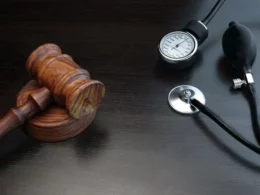If you’re a healthcare provider, you know how important it is to submit medical claims in a timely manner.
However, there may be situations where you’re unable to meet the standard deadline for submitting a claim. In such cases, it’s crucial to understand the valid reasons for delay in submission of medical claims.
Well, you’re in the right place because this beneficial piece with it will provide you will all the valid reasons for delay in submission of medical claim, as well as how to prevent delays in submitting medical claims.
9 Valid Reasons for Delay in Submission of Medical Claim
When it comes to submitting medical claims, there are a variety of reasons why there may be a delay in the submission process. These reasons can range from simple documentation errors to more complex issues like prior authorization problems.
It’s paramount to understand the valid reasons for delay in submission of medical claims, so you can take the necessary steps to ensure that your claims are processed in a timely and efficient manner.
1. Documentation Errors
One of the most common reasons for a delay in claim submission is documentation errors. This can include missing or incomplete information, incorrect patient information, or incorrect procedure or diagnosis codes.
To avoid these errors, it’s important to double-check all of your documentation before submitting a claim. You should also make sure that you are using the correct medical codes for each procedure and diagnosis.
2. Additional Documentation
One of the most common reasons for delayed submission of claims is the need for additional documentation. Sometimes, the healthcare provider may not have all the necessary information to complete the claim.
In such cases, it’s important to communicate with the patient and request the required documentation. You can then submit the claim once you have all the necessary information.
3. Appealing Claim Denials
If your claim is denied, it’s important to know that you have the right to appeal the decision. This can be a lengthy process, but it’s worth pursuing if you believe that the claim was unfairly denied.
To appeal a claim denial, you will need to provide additional documentation to support your claim. This can include medical records, test results, and other relevant information.
4. Handling Claim Denials
If your claim is denied, it’s important to understand the reason for the denial. This can help you take the necessary steps to address the issue and resubmit the claim.
Common reasons for claim denials include incorrect information, prior authorization issues, and medical coding errors. Carefully reviewing all of your documentation before submitting a claim can help you to avoid this issue.
5. Proof of Timely Filing
Insurance companies typically have strict guidelines for timely filing of medical claims. If you miss the deadline for submitting a claim, it may be denied.
To beat this, keep accurate records of when each claim was submitted and to follow up with the insurance company to ensure that it was received.
6. Incorrect Information
Submitting incorrect information on a medical claim can lead to delays and denials. This can include incorrect patient information, incorrect procedure or diagnosis codes, or other mistakes.
To negate this, it’s absolutely vital to double-check all of your documentation before submitting a claim.
7. Prior Authorization Issues
Some medical procedures require prior authorization from the insurance company before they can be performed. If you fail to obtain prior authorization, the claim may be denied.
If you want to avoid this problem, you have to check with the insurance company before scheduling any medical procedures to ensure that prior authorization is obtained.
8. Medical Coding Errors
Medical coding errors can lead to delays and denials of medical claims. This can include using incorrect procedure or diagnosis codes, or failing to include the correct codes altogether.
To avoid these issues, it’s important to use the most up-to-date medical codes and to double-check all of your documentation before submitting a claim.
9. Errors in Coding and Billing
Another valid reason for delay in submission of medical claims is errors in coding or billing. If there are mistakes in the coding or billing process, it can lead to claim denials or delays. It’s important to double-check all the information before submitting the claim to avoid such errors. If you do come across any issues, make sure to correct them as soon as possible and resubmit the claim.
Overall, there are many valid reasons for delay in submission of medical claims. By understanding these reasons and taking steps to avoid them, you can ensure that your claims are processed in a timely and efficient manner.
Whether you handle your medical billing in-house or outsource it to a medical billing expert, it’s critical to stay up-to-date on the latest rules and regulations to ensure that your claims are processed correctly.
How to Prevent Delay in Submission of Medical Claims
Submitting medical claims can be a time-consuming and complicated process, and delays can be costly for both providers and patients. Here are some steps you can take to help prevent delays in the submission of medical claims.
Ensure Accurate Documentation
One of the most common reasons for delayed medical claims is inaccurate documentation. To avoid this, make sure that all patient information, including diagnosis and procedure codes, is accurate and up-to-date. Double-check all information before submitting the claim.
Check for Prior Authorization
Many insurance providers require prior authorization for certain procedures or treatments. Make sure to check with the insurance carrier before submitting a claim to ensure that all necessary authorizations have been obtained.
Double-Check Codes and Information
Medical coding errors can lead to delays in reimbursement. Double-check all codes and information before submitting a claim to ensure accuracy.
Follow Up with Providers
If there are any delays or issues with reimbursement, follow up with the insurance carrier and healthcare provider to ensure that the claim is being processed correctly. Don’t be afraid to make phone calls and send formal requests if necessary.
Understand Insurance Guidelines
It’s important to understand insurance guidelines and requirements to ensure that claims are submitted correctly. Take the time to review insurance guidelines and stay up-to-date on any changes or updates.
By following these steps, you can help prevent delays in the submission of medical claims and ensure that reimbursement is received in a timely manner. Whether you handle medical billing in-house or outsource to medical billing experts, taking these steps can help streamline the process and reduce errors.
Conclusion
In conclusion, timely submission of medical claims is crucial to ensure prompt payment and avoid claim denials. However, there are valid reasons for delay in submitting a claim, and it is important to understand them to avoid potential issues.
As discussed earlier, some of the common reasons for delayed claims include coordination of benefits, bundling, and incorrect coding. It is essential to ensure that all the information provided in the claim is accurate and complete to avoid any delays.
If you encounter a delay in submitting a claim, it is important to know the acceptable delay reasons and the required documentation. The delay reason codes and their corresponding documentation requirements are listed in Table 2 of the UB-04 Submission and Timeliness Instructions.
It is also important to note that there are time limits for submitting delayed claims. Claims that are aged over 90 days from the date of service cannot be submitted if no delay reason code is appropriate for the claim. This also applies to paid and denied claim resubmissions delayed more than sixty days from the time of notification of the need for correction or adjustment.
In summary, understanding the valid reasons for delay in submitting medical claims and following the appropriate procedures can help you avoid claim denials and ensure timely payment. If you have any questions or concerns, it is always best to consult with your billing specialist or healthcare provider.
YOU SHOULD ALSO READ:
- Medical Negligence After Miscarriage: Causes, Effects, and Legal Options
- Can You Get Legal Aid for Medical Negligence? Explained
- Medical Negligence: Broken Leg Cases and Compensation
- Can You Sue a County Jail for Medical Negligence? Exploring Your Legal Options
- Medical Claims vs Pharmacy Claims: Everything You Need To Know












